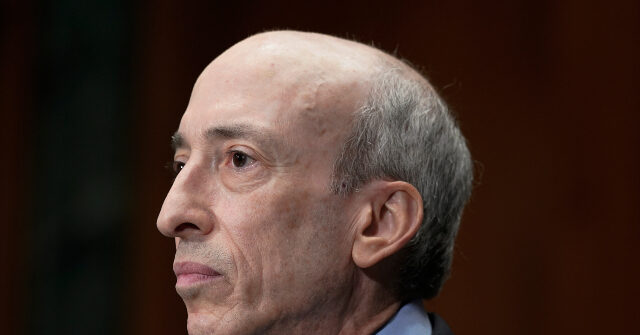Securities and Exchange Commission (SEC) chairman Gary Gensler is set to resign in January 2024, opening the door for President-elect Donald Trump to appoint a new chairperson who is likely to adopt a pro-cryptocurrency stance and oppose stringent climate change policies. During his tenure, Gensler attracted controversy due to his aggressive approach to enforcing climate disclosure regulations and his confrontational stance toward the cryptocurrency industry. His policies were seen as burdensome by many in the financial sector, prompting criticism from various quarters, including crypto advocates and some lawmakers who argued that his oversight hindered innovation and growth in financial technology.
The Wall Street Journal indicated that Gensler’s proposed climate change disclosure rule could mandate public companies to provide exhaustive climate-related data in their financial statements. These requirements would extend to a wide range of climate impacts, from the costs associated with natural disasters to potential losses from sales contracts influenced by laws regulating carbon emissions. The SEC’s goal was to improve transparency regarding climate risks by mandating disclosures about any climate-related costs and risks exceeding 1% of each financial statement line item. Critics of the proposed rules argued that this could overwhelm companies with excessive reporting requirements and detract from their focus on core business activities.
Gensler’s tenure was also marked by significant friction with the cryptocurrency sector, culminating in multiple lawsuits filed by the SEC against major digital asset firms and exchanges, which raised alarms about regulatory overreach. His administration saw increased scrutiny and enforcement actions against those handling and selling cryptocurrencies, contributing to what many in the industry described as an existential battle for survival. The ongoing regulatory tensions have heightened calls for a regulatory framework that supports innovation while ensuring consumer protection in an evolving market.
Controversially, Gensler also investigated Elon Musk’s $44 billion acquisition of Twitter, now known as X, for potential fraud, stirring discussions around the SEC’s focus on influential figures in technology and their corporate dealings. Additionally, Gensler’s inquiry into the free speech platform Rumble drew criticism from lawmakers like Rep. Byron Donalds, who suggested that it interfered with the platform’s role during the 2024 presidential election cycle. These actions have added complexity to the public discourse about the SEC’s role and its impact on the broader media and tech landscape.
The forthcoming vacancy at the SEC seems poised to shift the regulatory approach toward cryptocurrency and climate policies, particularly with two other commissioner terms also set to expire during Trump’s administration. Supporters anticipate that Trump will nominate commissioners who are more receptive to the needs of the crypto industry, offering a stark contrast to Gensler’s aggressive regulatory regime.
In response to Gensler’s departure, prominent voices from the financial sector, including members of Congress, have expressed optimism about the potential for a more open regulatory regime. Rep. French Hill emphasized the need to end the perceived “debanking” of cryptocurrency companies, advocating for increased competition and a regulatory approach that fosters innovation rather than stifles it. As the crypto landscape continues to evolve, stakeholders are keenly watching to see how the future leadership of the SEC will shape the regulatory environment in which they operate.

